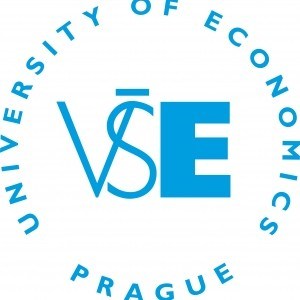Photos of university / #vsecz
Advertisement
The M.A. in Economics of Globalization and European Integration is a European Joint Studies Programme organized by 7 European partner universities. The programme has been running since the academic year 1994/95. In 2006, it received formal accreditation by the Czech ministry of education. As a result, the programme became a regular consequential master´s course at the University of Economics in Prague, one of four English-language master programmes currently offered by the university.
Basic characteristics
The programme of Master of Arts in Economics of Globalisation and European Integration (further to be referred to as EGEI, MA EGEI or programme) is an English-language international studies programme. The programme is organized by a consortium of nine partner universities, even though the teaching itself takes place at only three of them each year.
The programme has two main characteristics:
* In 2012, the programme was selected by the European Commission as an ERASMUS MUNDUS programme, and it is running as such from the academic year 2012/13.
* The EGEI is a Joint European Studies Programme, a category having certain specific features
* In 2010 two new universities joined consortium of universities, Xianmen University, China and Universidade de Brasilia, Brazil
Due to the fact that this website is not primarily destined for applicants from the category ERASMUS MUNDUS (the so-called third-country nationals), the specific rules relating to this category (such as rules of admission procedure, funding, etc.) are not explained here. For this information see the following website of the Universiteit Antwerpen: This page is a section of the programme official website that the Universiteit Antwerpen runs. There, you may find also a description of the programme, differently structured and more detailed.
Joint European Studies Programme
The terms joint programme or joint degree are categories to a certain extent unified at the level of European space of higher education, even though differences remain between the individual national legislations. The Joint European Studies Programme represents a general category of international studies programmes that have among other things these common features:
* the content of study, curriculum and rules of admission procedure, examination, awarding diplomas and other are prepared jointly by the partner universities
* courses taken and examinations passed are recognized fully and automatically at all partner institutions
* students from the individual partner universities study a significant part of the programme at other partner institutions, however, it is not a requirement for the JESP that the students study at all of the partner institutions (which is the case with EGEI)
* joint programmes with their international character give the graduates an important advantage in the labour market, providing them with valuable experience, such as getting to know different academic approaches or meeting people with different cultural backgrounds. It is needless to emphasize that this experience of an international environment is highly valued by the prospective employers.
The study programme in academic year 2011/12 covers issues of advanced theoretical and appplied economics especially in relation to problems of Economics of globalisation and European economic integration.
The total programme consists of 60 ECTS. The taught part of the programme consists of 45 credits and the dissertation of 15 credits. One credit in the taught part roughly corresponds to 25 hours of working time (lectures, assignments and homework). All subjects are completed by written examinations.
Discipline/module
Economic Theory * Advanced Microeconomics
* Advanced Macroeconomics
* International Trade: Theory and Policy
* Open Economy Macroeconomics and International Finance
* Economics of Globalisation
* Economics of European Integration
* Applied Econometrics
Optional courses * Advanced
* Skills
* Students should choose one subject from the list of Advanced subjects option courses and one subject from the list of Skills option courses. They may however choose more option courses from both lists. Only the best marks from both lists will be used to calculate his/her overall average. For academic year 2011/12 Skills options: French, Dutch, Czech, Italian, Portuguese, Spanish languages and Academic Writing. Advanced options: Economics of Regulation, Special topics of International Trade, Special Topics in Applied Econometrics and Special Topics of Intrnational Finance.
Given the above, the structure of study in terms of ECTS may be expressed as follows:
38 + 5+ 2 + 15 = 60
Audience
In this programme, students from the European Union member countries, EEA-EFTA countries (Iceland, Liechtenstein and Norway) and from the candidate countries for accession to the EU (Croatia, Turkey and FYROM (Macedonia)) can study.
Being an ERASMUS MUNDUS programme, the programme was opened to third-country students as well, whereby third country is defined as any country not mentioned above.
Want to improve your English level for admission?
Prepare for the program requirements with English Online by the British Council.
- ✔️ Flexible study schedule
- ✔️ Experienced teachers
- ✔️ Certificate upon completion
📘 Recommended for students with an IELTS level of 6.0 or below.











